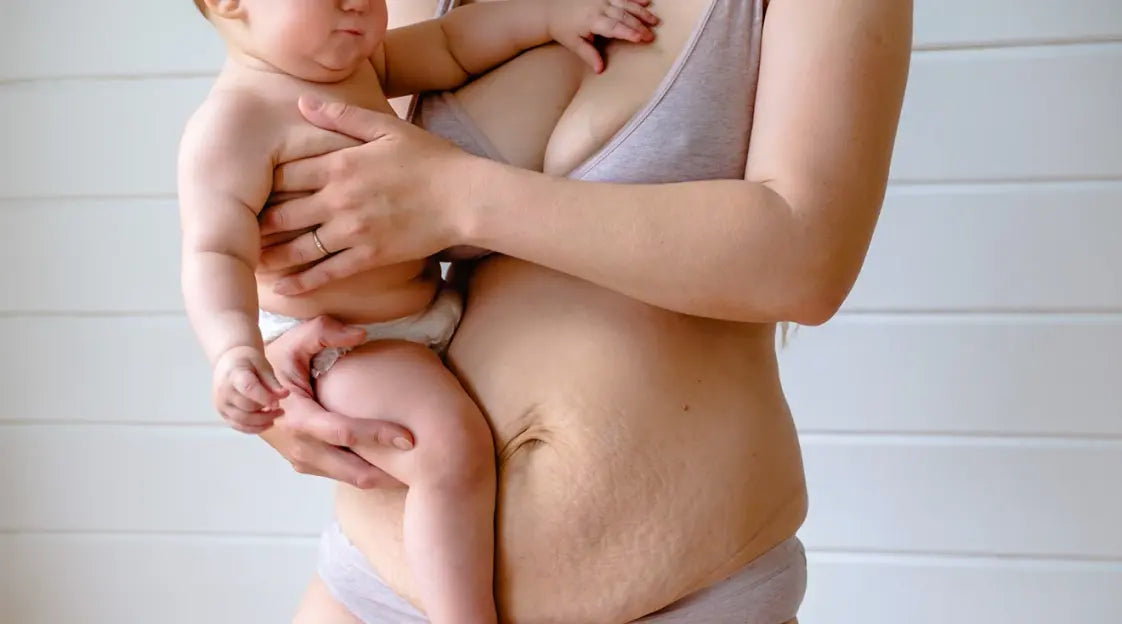My Cart(0)
Navigating the Postpartum Journey: Essential Self-Care Tips for New Mothers

Introduction:
The birth of a child is a monumental event in a woman's life, filled with joy, excitement, and new challenges. However, the postpartum period, or the first few weeks after giving birth, can also be a time of physical recovery and emotional adjustment for new mothers. Taking care of yourself during this period is crucial for your well-being and your ability to care for your newborn. Drawing from trusted sources such as the Cleveland Clinic, Stanford Children's Health, and the Mayo Clinic, this blog post aims to guide new mothers through their postpartum journey with essential self-care tips that promote healing, comfort, and emotional wellness.

Physical Recovery and Comfort
1. Rest and Sleep
The importance of rest cannot be overstated in the postpartum period. Your body needs time to heal, and sleep deprivation can exacerbate feelings of stress and overwhelm. Try to sleep when your baby sleeps and don't hesitate to ask for help from family and friends to ensure you can get the rest you need.
2. Nutrition
Proper nutrition is vital for recovery and energy. Focus on a balanced diet rich in fruits, vegetables, whole grains, protein, and healthy fats. Hydration is equally important, especially if you are breastfeeding. Aim to drink plenty of water throughout the day.
3. Physical Activity
While rest is crucial, gentle physical activity can also aid in recovery and boost your mood. According to the Cleveland Clinic, activities like walking and pelvic floor exercises can be beneficial. However, it's important to listen to your body and consult with your healthcare provider before starting any exercise regimen.
4. Pain Management
Postpartum discomfort is common, whether from delivery, cesarean section incisions, or breastfeeding. The Mayo Clinic advises new mothers to manage pain with recommended medications, warm baths, or ice packs, and to seek medical advice if pain persists or worsens.
Emotional Well-being
1. Seek Support
The transition to motherhood can be overwhelming. Stanford Children's Health emphasizes the importance of seeking support from partners, family, friends, or support groups. Sharing your experiences and feelings can provide comfort and guidance.
2. Manage Stress
Finding ways to manage stress effectively is key to emotional well-being. Techniques such as deep breathing, meditation, and mindfulness can help alleviate stress and promote relaxation.
3. Postpartum Depression Awareness
It's crucial to recognize the signs of postpartum depression (PPD), which can include persistent sadness, anxiety, and fatigue. If you suspect you are experiencing PPD, reach out to a healthcare professional for support and treatment options.
Practical Tips for Postpartum Care
1. Prepare Your Home
Before your baby's arrival, prepare your home to make your postpartum period as smooth as possible. Stock up on essentials, create a comfortable resting area, and consider meal prepping to ease the burden of daily tasks.
2. Limit Visitors
While it's natural to want to share this special time with friends and family, it's also important to limit visitors in the early weeks to avoid exhaustion and allow time for bonding with your baby.
3. Accept Help
Don't be afraid to accept help or delegate tasks. Whether it's childcare, cooking, or household chores, allowing others to assist can provide you with much-needed rest and recovery time.
4. Follow-Up with Your Healthcare Provider
Postpartum check-ups are important to ensure your physical and emotional health is on track. Discuss any concerns with your healthcare provider, from physical recovery to emotional changes.

Conclusion:
The postpartum period is a time of immense change and adjustment. Taking care of your physical and emotional well-being is not only beneficial for you but also for your newborn. Remember, seeking support, managing stress, and focusing on self-care are not signs of weakness but steps toward a healthy and happy motherhood. As you navigate this journey, know that you're not alone, and there are resources and people ready to support you every step of the way.
Remember, the journey of motherhood is unique for every woman, and it's okay to take things at your own pace. By prioritizing your well-being and embracing the support available to you, you'll not only recover more effectively but also enjoy the profound journey of becoming a new mother.
unsubscribe at any time without costs.










